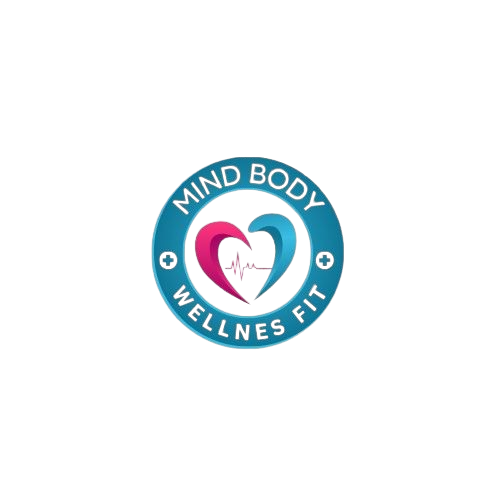Perimenopause is a natural phase in a woman’s life, marking the transition towards menopause. It typically begins in a woman’s 40s but can start earlier, often with symptoms that can disrupt daily life. During this time, hormonal changes take center stage, leading to a variety of symptoms such as mood swings, hot flashes, weight gain, fatigue, and irregular periods.
While managing perimenopause symptoms can be challenging, one of the most effective tools you have is nutrition. The right diet can help regulate hormone levels, improve energy, and ease the discomforts associated with this life stage. This guide will explore the role of nutrition in supporting your health during perimenopause, with a focus on key foods, nutrients, and strategies to help you maintain balance.
What is Perimenopause? A Guide to Hormonal Changes
What is Perimenopause? Perimenopause is the phase leading up to menopause, where hormonal fluctuations begin. During this time, the ovaries gradually produce less estrogen, which affects various body systems. These hormonal changes can bring about symptoms such as hot flashes, sleep disturbances, weight gain, and mood swings.
Symptoms of Perimenopause include:
- Hot flashes and night sweats
- Irregular menstrual cycles
- Fatigue and sleep disturbances
- Weight gain, particularly around the midsection
- Mood swings, irritability, or sadness
Managing these symptoms effectively requires addressing the root cause—hormonal imbalance—and proper nutrition plays a crucial role in this process.
The Role of Nutrition in Managing Perimenopause Symptoms
Nutrition is a powerful tool when it comes to balancing hormones during perimenopause. Certain foods can help regulate blood sugar levels, reduce inflammation, and support hormonal health, all of which can alleviate common perimenopause symptoms.
Eating nutrient-dense, whole foods can stabilize blood sugar, reduce sugar cravings, and promote healthy weight management. Additionally, focusing on anti-inflammatory foods helps mitigate symptoms like joint pain, hot flashes, and mood swings.
By including the right nutrients in your daily diet, you can naturally manage symptoms and promote overall well-being.
Key Nutrients to Focus on During Perimenopause
Certain nutrients become particularly important during perimenopause, as they support hormonal balance, boost energy, and reduce symptoms.
Magnesium: Known for its calming effects, magnesium helps with sleep, reduces stress, and supports muscle function. It also aids in regulating blood sugar levels, which is essential as many women experience insulin resistance during perimenopause.
Vitamin D: Vital for bone health, Vitamin D also plays a role in regulating estrogen levels. Low levels of Vitamin D have been linked to an increased risk of osteoporosis, which is more common after menopause.
B Vitamins: These vitamins are crucial for energy production, metabolism, and brain health. B vitamins, particularly B6, can help reduce mood swings and irritability, common symptoms of perimenopause.
Omega-3 Fatty Acids: Found in fatty fish like salmon and flaxseeds, omega-3s help reduce inflammation and support heart health. They can also help manage mood swings and depressive feelings that may arise during perimenopause.
Phytoestrogens: Plant-based compounds found in foods like soy, flaxseeds, and lentils, phytoestrogens may help balance estrogen levels and ease symptoms like hot flashes and night sweats.
Perimenopause Foods to Include in Your Diet
Incorporating the right foods into your diet can significantly improve your experience with Perimenopause Nutrition. Focus on hormone-balancing foods that support overall well-being.
Leafy Greens: Vegetables like spinach, kale, and broccoli are high in magnesium, fiber, and antioxidants. These nutrient-rich foods help regulate blood sugar, support digestion, and reduce inflammation.
Fatty Fish: Salmon, sardines, and mackerel are packed with omega-3 fatty acids, which are beneficial for reducing inflammation, supporting heart health, and balancing hormones.
Soy and Legumes: Foods like tofu, tempeh, chickpeas, and lentils are rich in phytoestrogens, which mimic the effects of estrogen in the body, potentially easing symptoms like hot flashes.
Nuts and Seeds: Almonds, walnuts, chia seeds, and flaxseeds provide healthy fats and plant-based protein. These foods support hormone regulation, reduce inflammation, and promote heart health.
Whole Grains: Brown rice, quinoa, and oats are excellent sources of fiber, which helps stabilize blood sugar and promote sustained energy levels throughout the day.
Foods to Avoid During Perimenopause
Certain foods may disrupt hormonal balance and exacerbate perimenopause symptoms. Being mindful of these foods is key to managing your health during this time.
Refined Sugars and Carbs: High-glycemic foods like sugary snacks, white bread, and pasta can cause blood sugar spikes and crashes. This can lead to increased cravings, weight gain, and even mood swings.
Caffeine and Alcohol: Both caffeine and alcohol can interfere with sleep, exacerbate hot flashes, and disrupt hormone levels. Reducing consumption of these can improve your sleep quality and ease hot flashes.
Processed Foods: Packaged snacks, fast food, and frozen meals are often high in sodium, unhealthy fats, and preservatives, which can contribute to inflammation and disrupt hormonal health.
Dairy: Some women find that dairy products, especially full-fat options, can trigger inflammation or exacerbate symptoms like bloating. It’s helpful to monitor how your body responds to dairy and consider alternatives like almond milk or coconut yogurt.
Creating a Perimenopause-Friendly Meal Plan
A perimenopause-friendly meal plan should focus on whole, nutrient-dense foods. Here’s an example of a simple, hormone-balancing meal plan for one day:
Breakfast: Oatmeal topped with chia seeds, walnuts, and a drizzle of honey. Pair with a cup of green tea. Lunch: Grilled salmon with a side of quinoa, steamed broccoli, and a spinach salad with olive oil and lemon. Snack: A handful of almonds and an apple. Dinner: Stir-fried tofu with kale, bell peppers, and brown rice. Dessert: A small piece of dark chocolate or a serving of Greek yogurt with flaxseeds.
This plan includes omega-3 fatty acids, fiber, and phytoestrogens, providing a well-rounded approach to managing perimenopause symptoms through nutrition.
The Role of Supplements in Perimenopause Nutrition
In addition to a balanced diet, some women find supplements helpful in managing perimenopause symptoms. However, supplements should complement, not replace, a nutritious diet.
Magnesium: A magnesium supplement can help improve sleep quality, reduce stress, and alleviate cramps or muscle aches that often accompany perimenopause.
Vitamin D: If your Vitamin D levels are low, a supplement can support bone health and help regulate estrogen levels.
Omega-3 Fatty Acids: If you’re not getting enough omega-3s from food, consider adding a fish oil supplement to support heart and brain health.
B Vitamins: A B-complex vitamin can provide energy and help regulate mood and metabolism.
As always, it’s essential to consult with your healthcare provider before starting any new supplement regimen.
The Power of a Holistic Approach: Lifestyle Tips to Complement Nutrition
While nutrition plays a central role in managing perimenopause, other lifestyle factors can further support hormonal health:
Exercise: Regular physical activity can improve mood, support weight management, and boost energy. Aim for a mix of aerobic exercise, strength training, and yoga or Pilates for flexibility and stress relief.
Stress Management: Techniques like meditation, deep breathing, or journaling can reduce stress and help balance cortisol levels, which impact hormonal health.
Sleep: Prioritize good sleep hygiene to ensure you’re getting enough rest. This is especially important for managing mood swings and maintaining healthy hormone levels.
Takeaway
Nutrition plays a vital role in managing perimenopause symptoms and supporting hormonal health. By incorporating nutrient-dense foods, staying mindful of your nutrient needs, and following a holistic approach that includes exercise and stress management, you can navigate this transition with greater ease.
Start taking control of your health today by choosing hormone-balancing foods, staying active, and finding ways to reduce stress. Your body will thank you for it as you enter this empowering new phase of life.






